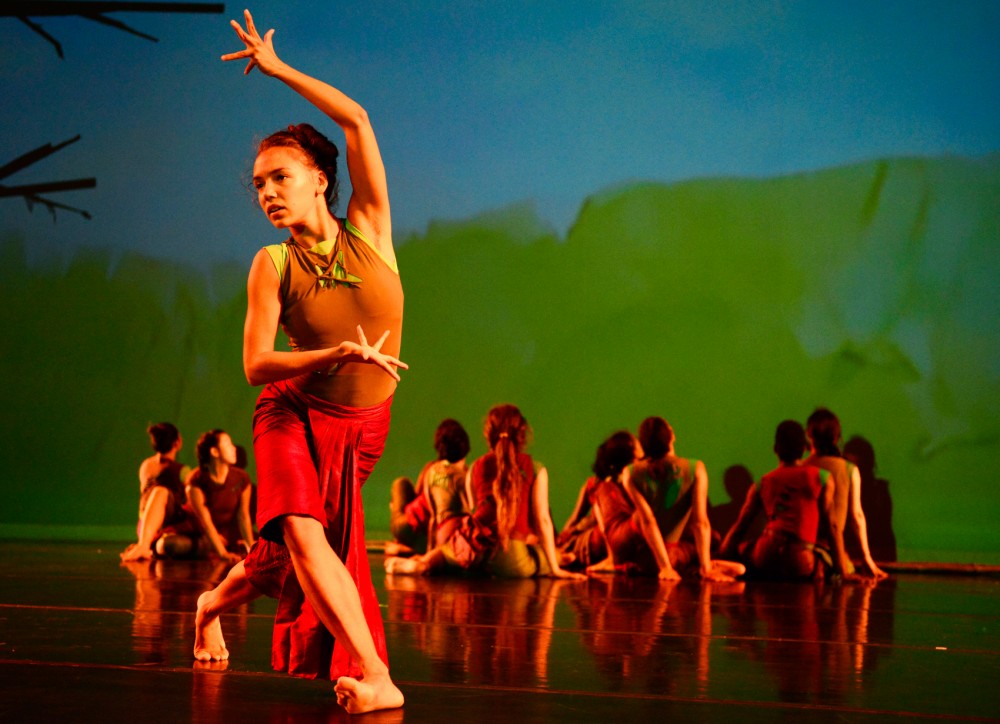Ananya Dance Theatre is working on a world premiere called “Roktim: Nurture Incarnadine,” which will explore the work women around the world do in their communities regarding food and agriculture.
“Seeds are not just seeds, but the basis of growing life,” founder and director Ananya Chatterjea said. Chatterjea also teaches dance history at the University of Minnesota.
ADT is a contemporary Indian dance theater made up of artists of color. Their style uses a unique form of dance called Yorchha, which is a combination of styles of Indian dance, yoga and Indian martial arts.
“Roktim” will begin and end outside of the O’Shaughnessy Auditorium in St. Paul in an evening-long dance concert. Students and seniors will get discounted tickets. Each section will involve audience participation.
A tour guide will lead the audience, and a few different acts will represent labor processes in the factories of companies that sell genetically modified seeds for profit. “Roktim” is somewhat like a mockery of these companies, performer Jay Galtney said.
Chatterjea has been a dancer for most of her life. However, she soon realized taking classical dance lessons in her hometown of Kolkata, India, wasn’t satisfying enough.
“If I can get up and do footwork faster than
anyone else, or if I can hold a balance longer than anyone else, that just isn’t interesting enough for me,” Chatterjea said. She was more interested in forms of
contemporary dance as expression.
Chatterjea came to Minnesota to study and teach dance in 1999 and was surprised to find that it wasn’t very diverse.
“I want to dance with people of color. How do I do that?” Chatterjea asked herself. “If I can find a way to understand dance as a part of civic action and a way for people of different communities to speak, then I’d be happy.”
And ADT was born.
After continuing her education with a scholarship at Columbia University in New York, she founded ADT in 2004 as a place for young people of color to use dance as a way to speak without words.
“For me, dance is a blueprint for revolution. That’s what it is, and that’s what I want to teach. If we can understand the possibilities of that, then we can do a lot with it,” she said.
The company was originally for women of color, and then men became interested in participating, too.
And Chatterjea isn’t just making a local impact through her dance and expression but an international one as well.
After the two Roktim performances this weekend, the team will fly out to Ethiopia on Sunday to perform the keynote performance representing the U.S. in the International Crossing Boundaries Festival.








